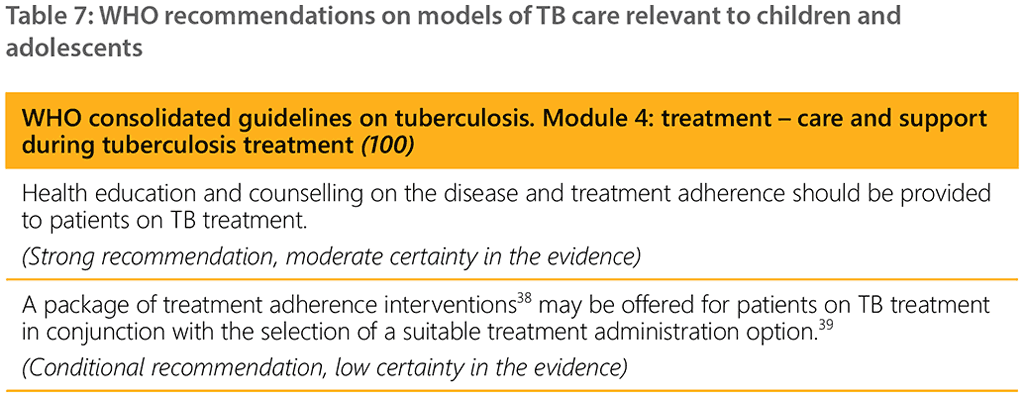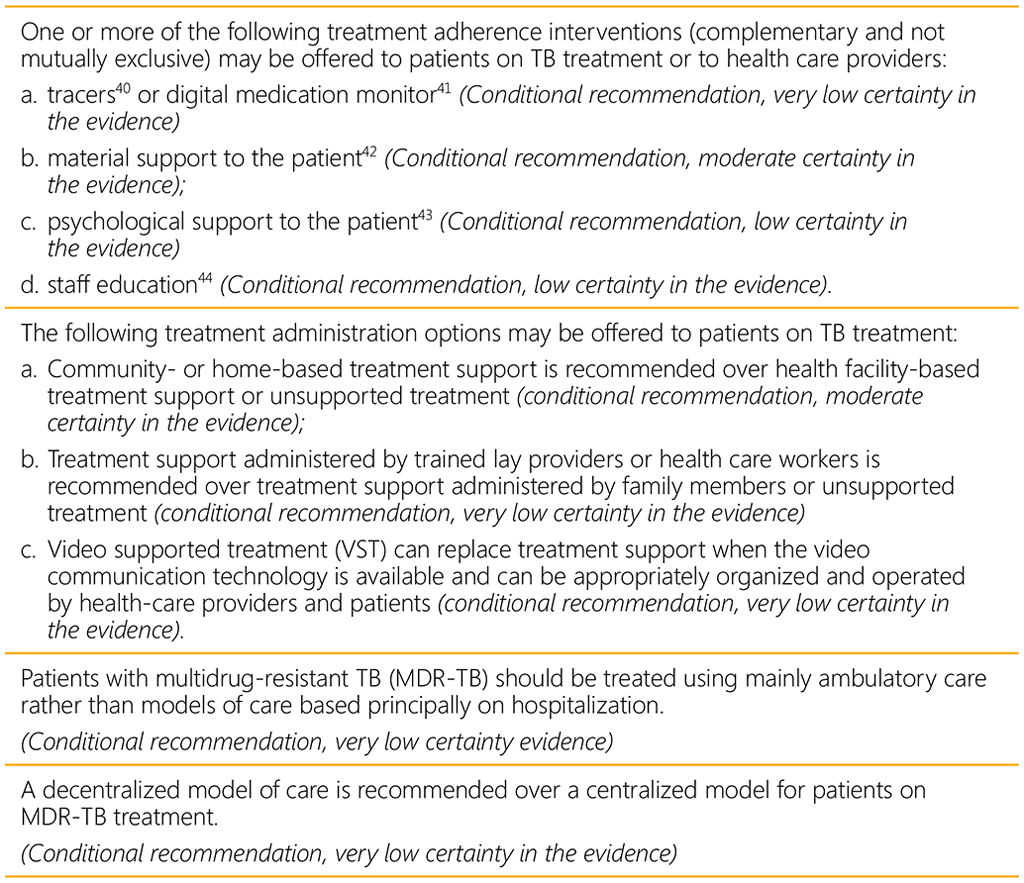Book traversal links for 6.2. Consolidated recommendations on models of TB care relevant to children and adolescents


³⁸ Treatment adherence interventions include social support such as patient education and counselling, material support (e.g. food, financial incentive, and transport fee); psychological support; tracers such as home visit or digital health communication (e.g. SMS, telephone call); medication monitor; and staff education. The interventions should be selected on the basis of the assessment of individual patient’s needs, provider’s resources and conditions for implementation.
³⁹ Suitable treatment administration options include various forms of treatment support, such as video-supported treatment and regular community of home-based treatment support.
⁴⁰ Tracers refer to communication with the patient including via SMS, telephone (voice) calls, or home visit.
⁴¹ A digital medication monitor is a device that can measure the time between openings of the pill box. The medication monitor may have audio reminders or send an SMS to remind patient to take medications, along with recording when the pill box is opened.
⁴² Material support can be food or financial support such as: meals, food baskets, food supplements, food vouchers, transport subsidies, living allowance, housing incentives, or financial bonus. This support addresses indirect costs incurred by patients or their attendants in order to access health services, and possibly tries to mitigate consequences of income loss related to the disease.
⁴³ Psychological support can be counselling sessions or peer-group support.
⁴⁴ Staff education can be adherence education, chart or visual reminder, educational tools and desktop aids for decision-making and reminder.
 تعليق
تعليق